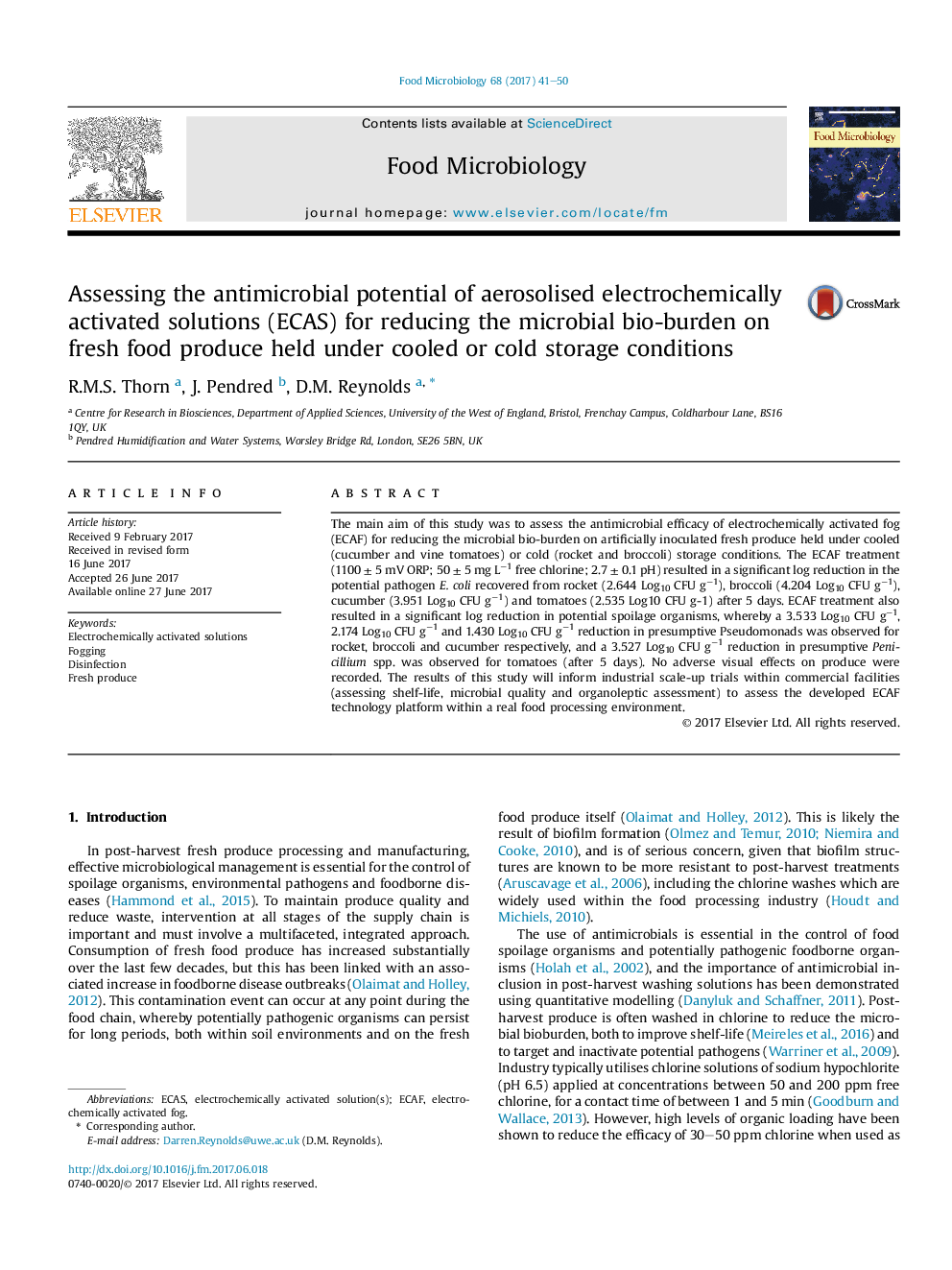| Article ID | Journal | Published Year | Pages | File Type |
|---|---|---|---|---|
| 5740105 | Food Microbiology | 2017 | 10 Pages |
â¢Effect of electrochemically activated fog (ECAF) on fresh produce was investigated.â¢An ECAF delivery technology platform was developed.â¢ECAF was shown to significantly reduce the microbial bio-burden on fresh produce.â¢Study results will inform industrial scale-up trials within commercial facilities.
The main aim of this study was to assess the antimicrobial efficacy of electrochemically activated fog (ECAF) for reducing the microbial bio-burden on artificially inoculated fresh produce held under cooled (cucumber and vine tomatoes) or cold (rocket and broccoli) storage conditions. The ECAF treatment (1100 ± 5 mV ORP; 50 ± 5 mg Lâ1 free chlorine; 2.7 ± 0.1 pH) resulted in a significant log reduction in the potential pathogen E. coli recovered from rocket (2.644 Log10 CFU gâ1), broccoli (4.204 Log10 CFU gâ1), cucumber (3.951 Log10 CFU gâ1) and tomatoes (2.535 Log10 CFU g-1) after 5 days. ECAF treatment also resulted in a significant log reduction in potential spoilage organisms, whereby a 3.533 Log10 CFU gâ1, 2.174 Log10 CFU gâ1 and 1.430 Log10 CFU gâ1 reduction in presumptive Pseudomonads was observed for rocket, broccoli and cucumber respectively, and a 3.527 Log10 CFU gâ1 reduction in presumptive Penicillium spp. was observed for tomatoes (after 5 days). No adverse visual effects on produce were recorded. The results of this study will inform industrial scale-up trials within commercial facilities (assessing shelf-life, microbial quality and organoleptic assessment) to assess the developed ECAF technology platform within a real food processing environment.
